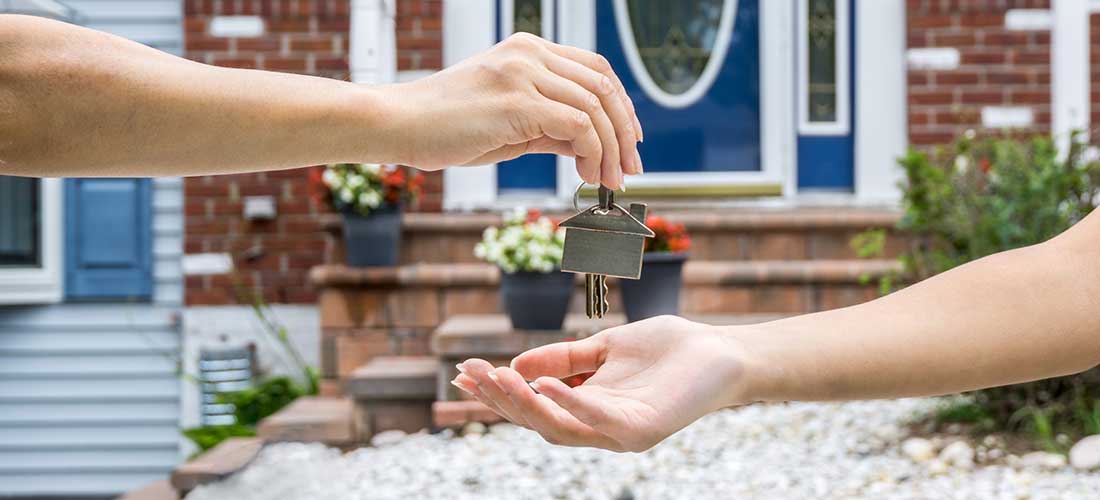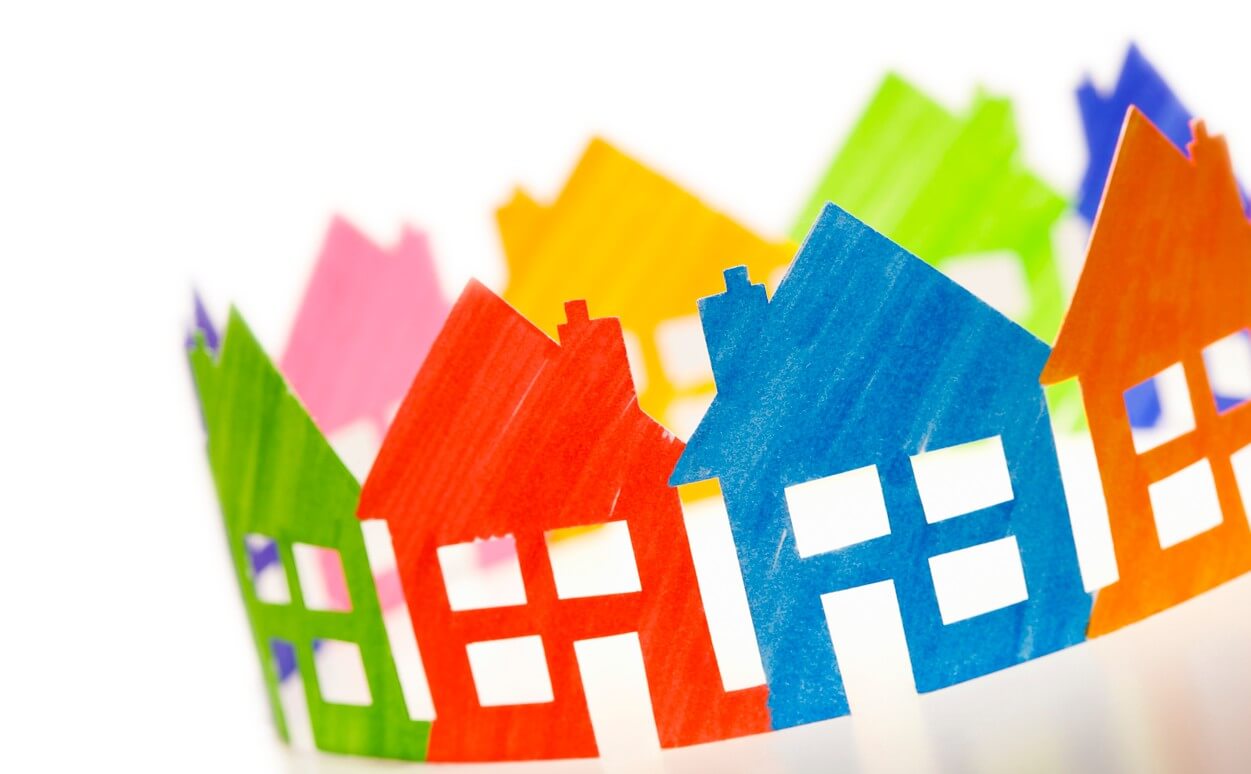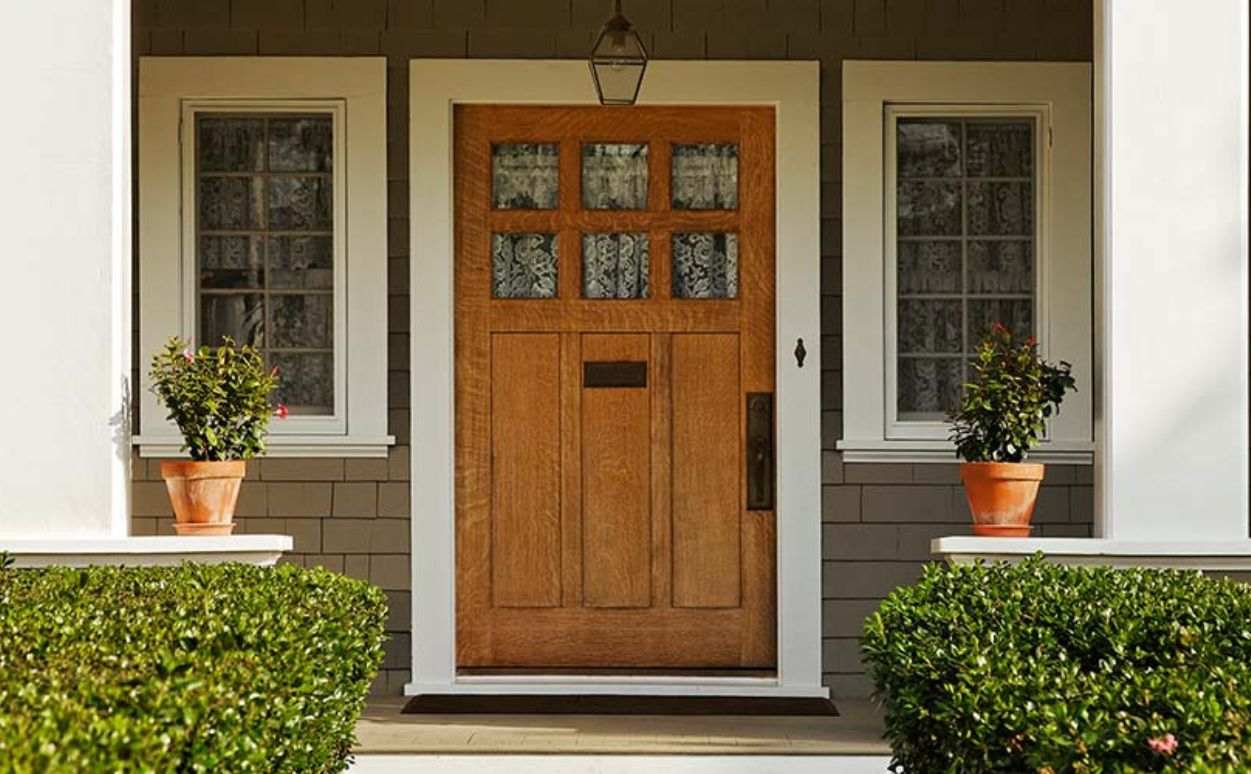Welcome
From planning for your retirement, to building your wealth, or getting onto the property ladder, there are many reasons why investing in property can be a good idea. Whether you're looking to buy your first investment property or you've purchased one before, we're here to help you on your journey of purchasing an investment property.
Our guide to buying an investment property
The journey to buying an investment property is similar to venturing into the great unknown and can be filled with endless stumbling blocks and difficult decisions that need to be made. We've gone to great lengths to break down the jargon barriers and help you navigate your investment journey with ease.
Here are some of the benefits of banking with us when you're buying an investment property:
- Speaking to the same person every step of the way
- Access to our competitive home loan rates
- The ability to borrow up to 95% of the value of the property, inclusive of loan mortgage insurance
Step 1: What to consider when buying an investment property
First steps for buying your investment property
Buying an investment property can be a life altering venture with many highs and lows along the way. Either way, we're here to help simplify the process.
Here are some key points to consider when purchasing an investment property:
- Set yourself a strict purchasing budget
- Understand the amount you're able to borrow
- Know what your deposit amount needs to be
- Consider how long you intend keeping the investment property
- Understand what equity you already have and how it can work for you
- Know if it's going to rented to short term or long term tenants
- Understand what your monthly repayments will be
- Work out a savings plan for unexpected costs
- Understand the upfront and ongoing costs of owning an investment property
- Once you've settled on a suburb, research the area and home pricing
- Understand the impact of positive and negative gearing
Step 2: Understanding what your costs are
Your upfront and ongoing costs
When purchasing an investment property it's important to consider all your expenses, including not only the more obvious upfront costs, but also the ongoing costs of property ownership too.
Upfront costs:
- Stamp duty - we've got a handy stamp duty calculator here
- Lenders mortgage insurance - only required if you have less than 20% of the home deposit
- Legal fees - for completing conveyancing and title searches on your new home
- Building and pest inspections
- Property valuation
- Remodelling
- Connection fees eg. water
- Real estate leasing fees or fees associated with renting the property
Ongoing costs:
- Mortgage repayments - most lenders will offer a flexible repayment option suited to your pay cycle
- Council rates - houses generally attract a high fee than units
- Body corporate fees - apartments and units often charge owners body corporate fees for the general maintenance of common areas
- Utilities eg. gas and water
- General maintenance eg. cleaners and gardeners
- Repairs and breakages eg. leaking taps
- Landlord insurance eg. covers you in the event the tenants refuses to pay rent
- Property management eg. should you hire a vendor to manager the rental process
Step 3: Working out your buying budget
What you can borrow and afford
Now you know what your upfront and ongoing costs will be during and after purchasing your investment property, it's important to drill down on your budget. Every investment journey should begin with a clear budget in mind.
When organising your budget don't forget to also include what you plan on saving per month to help you work towards any future financial goals you might have. BOQ Money can also take the hassle out of budgeting by allowing both BOQ customers and non-customers to easily find out where their money is being spent. Remember your borrowing power will be likely be affected by your income and also your expenses.
Helpful tools for buying an investment property
As an investor, typically your financial situation will be a little more complex. It’s probably best you work with your bank and financial advisor to fully understand your borrowing power and the right investment property loans for you.
Get buying faster with our budget calculator
These tools make it easy to calculate how much you can save based on your income and expenses. These calculators can also help you determine what you're spending and where and how you can monitor your monthly expenses to make your investment property purchase easier.
Step 4: Choosing your investment property home loan
Choosing the right investment property home loan is just as important as finding your own home loan for your primary place of residence. Your investment home loan needs to have all the features that suit your individual needs.
Some considerations to keep in mind when selecting your first home loan:
- Principal and interest loans
- Interest only loans - many investors choose this option, however the principle will need to be paid down over the life of the loan
- Split loan - when a portion of your loan is fixed and a portion is variable
- Fixed rate loans
- Variable interest rate loans
- Redraw facility - have access to extra repayments on your home loan when you need it
- Mortgage offset - reduce the interest you pay on your loan by keeping your savings in a mortgage offset account
For tips on how to pay off your investment property sooner check here
Step 5: Other top tips for investing in property
Now you've chosen your loan, understand your budget, upfront and ongoing costs, it's important to know what you also need to consider.
Here some top tips to consider when purchasing an investment property:
- Choose the right property- unlike your residence, look for a property with low maintenance that's going to save you upkeep costs further down the track
- Know where to buy - ideally you'll want to focus on high growth areas and properties close to public transport, schools and local amenities
- Seek professional advice - if you're unsure about investing in real estate, seek professional direction
- Understand the market - the market can fluctuate in pricing due to many external factors
- Low vacancy rates- understand what the vacancy rates in the area are
- Wide appeal- depending on the area, aim to select a property with broader appeal for various renters such as young families, couples etc
- Positive or negative gearing - most property investors will borrow to purchase. Negative gearing occurs when the income from the property is less than your expenses
- Capital gains tax - should you choose to sell you may have to pay a capital gains tax
For our top tips on how to pay off your loan sooner check here
Step 6: Application for your investment property home loan
When you're applying for an investment property home loan the lender will asses you on many factors. One factor will be what equity you currently have. The assessment will be broken down into three categories; what you earn, what you owe, and what you own.
Some of the factors your lender will assess you on during your home buying journey:
What you earn
- Salary
- Investments
- Rental income
- Government income
What you own
- Savings
- Substantial personal assets eg. a car or home
What you owe
- Credit cards or loans eg. students debts, leases, other mortgages
Here are some important documents you'll need as proof of identification:
Primary identification
- Current drivers licence and/or current passport or birth certificate
Secondary identification
- Council rates notice, credit card, debit card, Medicare card, health care card
Step 7: Final steps for buying your first home
Once you have reached an agreement with the seller, the settlement process on your investment property can begin. On settlement day, your legal and financial representatives will ordinarily meet with the seller's representatives to transfer the ownership of the property from the seller to you (the buyer). The settlement date is set in the contract of sale, and is typically between 30-90 days.
To prepare for settlement, you'll likely need to do the following:
- Contact a solicitor or conveyancer to review your contract of sale before you sign it
- Return your signed contract of sale to the seller or the seller's agent
- Speak to your lender to start your home loan application. Ensure you have all your necessary documentation
- Speak to your solicitor or conveyancer about requesting any property searches you may want or need
- Organise a building and pest inspection
- Ensure you have enough funds to cover the property settlement and solicitor’s fees
- Organise your final inspection of the property. This is usually done on the day of settlement or close to it
- Collect your keys on settlement day and celebrate your new investment property
Popular home loans for property investors
Know what your repayments are for peace of mind
Fixed Rate Home Loan
A fixed rate home loan gives you certainty for up to 5 years without worrying about potential interest rate rises.
- Owner occupier and investor options available
- Great interest rates across our range of terms
- Principal and interest, or interest only repayments
Ready to get started?
We’re here to answer any questions you may have.
Get started online
Chat to us
- Call us on 1300 55 72 72
- Locate your nearest branch
Helpful hints: Investment property top tips
Here are some more useful articles if you're buying an investment property




